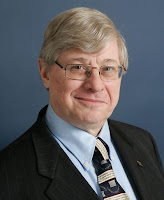Despite the advice of preachers and philosophers warning us of the shortcomings of money, it’s hard to argue with Gertrude Stein’s observation: “I’ve been rich and I’ve been poor. Rich is better.”
Although money is better at reducing suffering caused by poverty and relieving anxiety caused by debt than it is at making us happy, it can buy lots of things that make us feel good and important.
But wealth is not a certain road to happiness. A poor person with good relationships is much more likely to be happy than a rich person with lousy ones. And people who earn moderate wages, but love their work, are much more likely to be happy than those who earn a lot but hate what they do.
It’s easy to expect too much from money. Rich people have different problems than the non-rich, but they do have problems. Many are related to wealth, including shallow relationships, spoiled children, and continuous pressure from relatives and friends who expect a handout. Rich people, as a whole, are not more content or emotionally satisfied than others, and neither are their kids.
The problem is that people preoccupied with money are never satisfied. Often, their desires and debts grow faster than their means. The more they have, the more they think they need.
There’s nothing inherently wrong with material wealth or its pursuit, but there is a danger of paying too much to get it. As Rousseau said, “The money you have gives you freedom, but the money you pursue enslaves you.”
We shouldn’t disdain money, but we should put its value in perspective.
The moral: focus first on forming deep and enduring relationships and finding work that makes you fulfilled. At best, money is the icing, not the cake.
Editor's note: This article first appeared in the Capital City Free Press on October 23, 2015.
About the author: Michael Josephson is one of the nation’s most sought-after and quoted ethicists. Founder and president of Josephson Institute and its CHARACTER COUNTS! project, he has conducted programs for more than 100,000 leaders in government, business, education, sports, law enforcement, journalism, law, and the military. Josephson is also an award-winning radio commentator.
This article was published by the Josephson Institute.



No comments:
Post a Comment